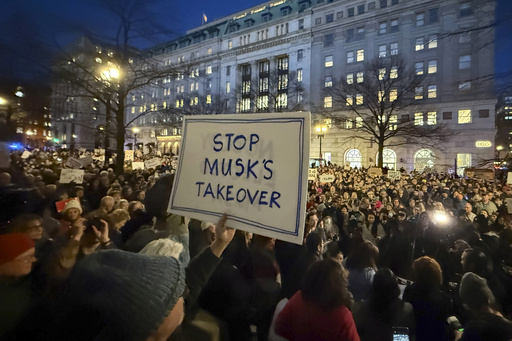Nearly 40% of the federal contracts the Trump administration claims it canceled under its cost-cutting program are unlikely to save the government any money, according to data released by the administration. The Department of Government Efficiency, led by Elon Musk, recently shared a list of 1,125 terminated contracts on its “Wall of Receipts.” Among these, 417 contracts, accounting for more than one-third of the total, are not expected to generate any savings. This is largely because the full value of these contracts has already been obligated, meaning the government is legally required to pay for the goods or services purchased, and in many cases, has already done so.
The situation has been likened to trying to reclaim spent ammunition; the contracts were likened to assets already expended with no remaining value. Charles Tiefer, a retired University of Baltimore law professor with expertise in government contracting, criticized the mass cancellation of contracts, stating that it fails to achieve the aim of cutting costs. Numerous terminated contracts involved subscriptions to media services like The Associated Press and Politico, which had already been paid, alongside various research studies, training events, software purchases, and internships that had been completed.
An anonymous official within the administration explained that cutting these contracts was aimed at eliminating perceived inefficiencies, even if it did not lead to immediate savings. The DOGE reports that the 417 questioned contracts had a total value of $478 million, with other canceled contracts expected to deliver minimal savings. Tiefer, who has past experience on contract-related commissions, warned this “slash and burn” approach could ultimately impair government operations. He advocates for alternative savings through collaboration with agency contracting officers and inspectors general, an approach yet to be implemented by the administration.
Despite claims by DOGE that the cancellations should save over $7 billion, independent analysts have questioned the accuracy of this figure, considering it potentially exaggerated. The canceled contracts encompassed a diverse array of goods and services. One example involved a $567,809 contract by the Department of Housing and Urban Development to install office furniture, which was fully committed before the contract’s expiration. Another instance was the U.S. Agency for International Development’s $145,549 agreement to clean carpets, already committed to a Native American tribe-owned business.
Further illustrating potential dissonance with DOGE’s goals, some contracts were meant to enhance and reform government efficiency. Notably, a significant contract was allotted for a reorganization at the CDC’s National Center for Immunization and Respiratory Diseases, obligating $13.6 million to Deloitte Consulting LLP for restructuring efforts, which included the closure of several research facilities.
In essence, the administration’s sweeping contract cancellations seem to be driven more by a desire to cut perceived excess than by actual budgetary savings, posing potential challenges to government agency operations.


